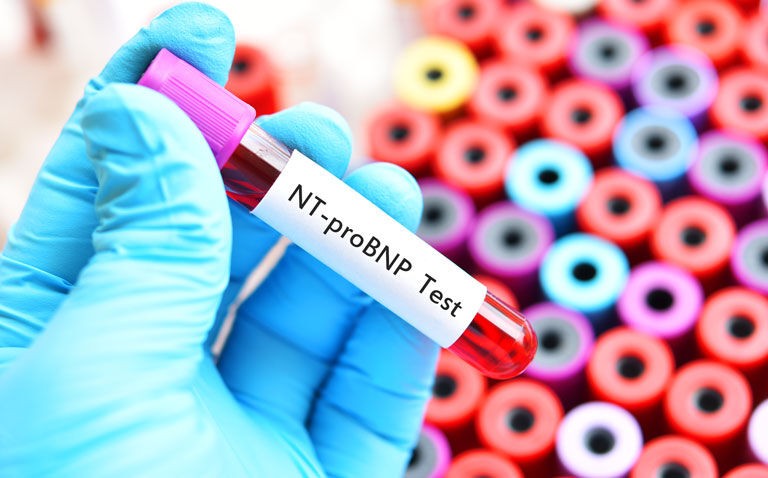Increased levels of NT-proBNP over time lead to an elevated risk of both heart failure and mortality among those without heart failure
Increases in the level of N-terminal B-type natriuretic peptide (NT-proBNP) over time are associated with a higher risk of incident heart failure and death among those initially without the disease according to the findings of a study by US researchers.
NT-proBNP levels serve as an important biomarker for patients with chronic heart failure. In fact, higher levels of the protein upon admission to hospital with COVID-19, have also been associated with an increased mortality risk and other complications in patients with and without heart failure. However, in many studies, NT-proBNP has been assessed at a single time-point and in the current work, researchers looked at changes in the biomarker over time and whether this might be prognostic for the development of heart failure among those who were initially free of the disease.
The team used data from the Atherosclerosis in the Communities (ARIC) study and included participants who had measurements of the biomarker at year 2 and 6 (i.e., 4 years apart) but had not been diagnosed with heart failure. The primary exposure variable was the change in NT-proBNP between visits 2 and 4, categorised as either <125 pg/mL or ≥125 pg/mL and the primary outcome measures were set as incident heart failure (HF) hospitalisation and all-cause mortality.
NT-proBNP and risk of heart failure
Data were available for 9,776 individuals (mean age = 57.1 years, 56.5% female) and who were included in the analysis.
Individuals with NT-proBNP levels of 125 pg/mL or higher at both visits had a significantly higher risk of incident HF compared to those with levels below this threshold (adjusted Hazard Ratio, aHR = 2.40, 95% CI 2.00 – 2.88). Similarly, there was an elevated risk of mortality (aHR = 1.68, 95% CI 1.47 – 1.91). Interestingly, those with NT-proBNP levels of 125 pg/mL or higher at visit 2 but which was lower at visit 4, still had a higher risk of HF although the result was not significant (HR = 1.01, 95% 0.71 – 1.43) when compared to those who levels were below the threshold at both visits. There was also a significant increase in HF and mortality risk based on the percent change in the biomarker per 1 standard deviation increase. There were also significant associations with cardiovascular risk factors such as systolic blood pressure, body mass index, triglyceride and low-density lipoprotein cholesterol and the change in NT-proBNP.
The authors concluded that the changes in NT-proBNP over time, reflected a dynamic change in the risk of HF events and death among those without prevalent clinical HF. They added that serial measurements of NT-proBNP could be use to improve risk stratification of patients pre-heart failure.
Citation
Jia X et al. Association of Long-term Change in N-Terminal Pro-B-Type Natriuretic Peptide With Incident Heart Failure and Death. JAMA Cardiol 2023










